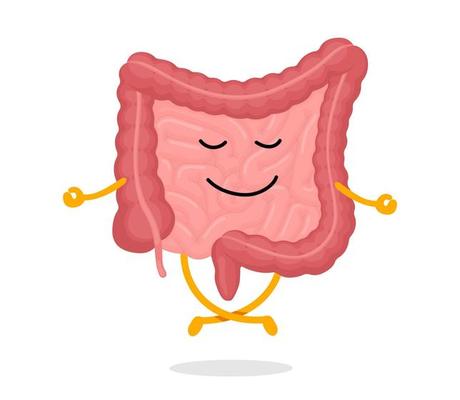Yesterday, a well-dressed, trim and handsome-looking man of 33 years came in for a consultation. Even though he looked so well dressed, he looked worried. Anyone who knew him could tell something was off. So, we seated him and allowed him to relax so we could check his pulse. While performing Nadi Pariksha, the client must be well-rested and calm so we can get the correct readings.
After a few minutes, while performing Nadi Pariksha and investigating it, what shone was the state of his gut health. He had altered gut peristalsis. This is an indication of restlessness and anxiety. The mind is a powerful tool which can alter the way the body functions. Upon further investigation, we realised that his liver had enlarged and was fatty. He had gotten his tests done and he showed us his reports. It read fatty liver disease grade II.
Did you know, that when you are not in the best of your senses, when you are stressed, restless or anxious, your body shuts down hunger? But, the mind creates a craving for satisfaction, and that is how we eat, despite not being hungry. Then, we need other entertainment such as watching television or the mobile phone, or even, express a need for increased sensory cravings such as garlic, mixtures along with food.
Having performed Nadi Pariksha and understood how his body works, we needed to ask some questions to understand how he treated his body. So, these are the questions we usually ask, which you too can ask yourself.
What do you eat every day?
To understand his diet, we need the answers to be as specific as possible. Some of our clients’ answers are short but not clear. They say, normal breakfast. Then, we have to tell them what our normal breakfast is. That is when they understand that they have to be specific with their answers.
The next question is at what time do you consume your meals?
The body works according to nature. There are specific times of the day, depending on the geography and season when the body feels hungry. For example, in summer months, the body does not feel hungry until late morning. Having little food is enough. However, the body demands more fluids. During winter months, the body feels hungry early morning, at 12:30 pm and again soon after sunset. And the body demands something hot and freshly cooked.
The third question is do you watch television or mobile while you eat?

As we mentioned earlier, when the mind is not satisfied, it craves satisfaction and more of it. So, while eating, the mind craves to watch television or a mobile phone. Our client said that he ate at a hotel every day because of the enticing aroma of the masala that would attract him. Furthermore, he would watch the mobile phone every day.
What you eat, when you eat, how you eat and how much you eat decides your gut health and your gut health controls your overall well-being. People understand that fruits, fruit juices, well-cooked food is good for the body. But, they do not realise that certain foods must not be mixed. They are good when consumed independently. This lack of knowledge causes them to struggle with gut issues.
Let’s understand what Ayurveda shastras say about gut health.
Acharya Vagbhata emphasises the importance of gut health, stating that –
रोगाः सर्वेऽपि मन्देऽग्नौ ॥
(अ.ह.नि.12/1)
(“Rogaha sarve api mandagnou”)
All diseases start from an unhealthy gut.
This is not new information. Our seers knew this thousands of years ago.
Ayurveda shastras place food (Ahara) as one of the three pillars of life (Trayoupasthambha). A sage called Kashayapa Muni says:
“There is no medicine as powerful as food.”
This is the crux of well-being.
In our next article, we will focus on foods that are generally good foods and foods you need to avoid.
Written by Dr Vedavally and edited by Dr Mahesh Krishnamurthy



